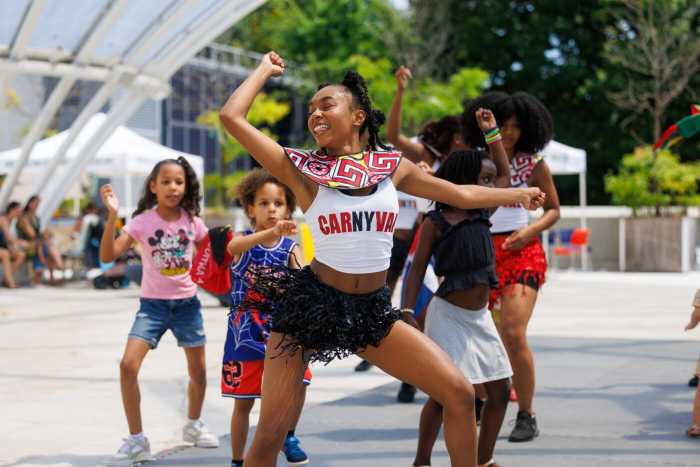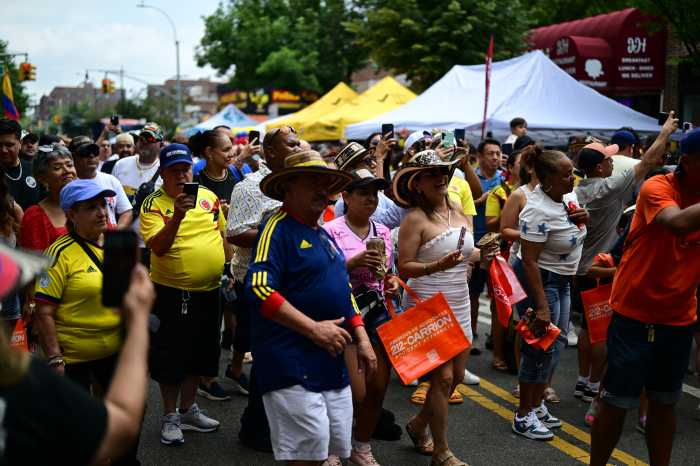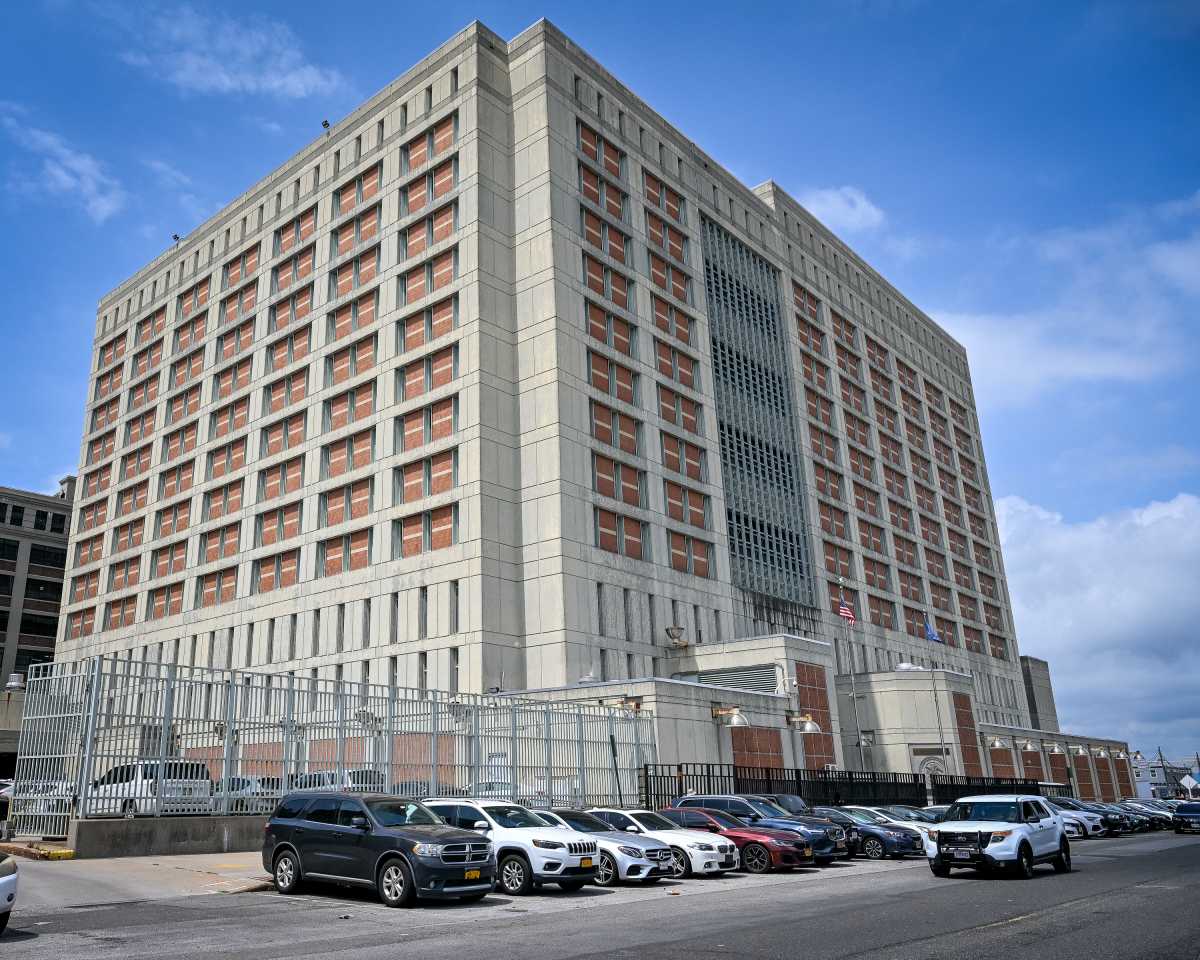Seventeen years ago, actor Robert DeNiro introduced a film festival that featured independent features, narratives, shorts and family friendly films. Panel discussions, celebrated personalities, original art works, a platform to showcase musical talent and other alluring enticements propelled the Tribeca Film Festival to what is now the premiere New York film event to experience.
With thousands of submissions to compete for jury favor, this year an entry about a Caribbean landmark adds diversity to the plethora of topical entries.
The film titled “Charlie’s Records” spotlights a Caribbean institution in Bedford-Stuyvesant, Brooklyn where calypso and soca music flourished and lives. Slated to be screened during the Tribeca Film Festival on May 3 at 6:30 pm “Charlie’s Records” expands the storyline with testimonies from rap royal Dougie Fresh, the king and queen of calypso the Mighty Sparrow and Calypso Rose, rapper Kurtis Blow, legendary entertainer Super Blue, Machel Montano, music specialist Bill Adler, and Prime Minister, Keith Rowley.
Rawlston Charles is the owner of Charlie’s Records. His daughter, Tina, has gone to great lengths to document the genesis of Charlie’s Records and in a 90-minute film, the two-time Olympic gold winning WNBA athlete makes her debut as a director to pay tribute to the man she considers an unsung hero.
Located at Fulton St., some of the high and mighty, a Duke, kings, at least one Lord, even a trailblazing woman — who recently celebrated her 79th birthday anniversary one week prior to making history as the oldest artist to perform at California’s acclaimed Coachella Valley Music Festival — have visited and recorded the genre from that mecca.
Calypso Rose reached the pinnacle of success when she found her “Tempo” there. It is her biggest selling hit.
And since 1972, Charlie’s Records has been the spot socaphiles and calypso-loving patrons rely to find the latest imports from the Eastern Caribbean compiled by Charles, an immigrant from Tobago.
Charles mostly known as Charlie is the pioneering entrepreneur who on arrival in 1967 from Trinidad felt that his familiar, home-grown music was under-represented.
He has often recounted how Jamaicans seemed more established throughout the music industry due to their investment in promoting reggae music.
He took note that Jamaican Clement Coxsone Dodd had corralled a loyal patronage in that same Brooklyn neighborhood selling his island’s rhythms.
He also witnessed what must have seemed to be the meteoric rise of VP’s Records, a store operated by Vincent and Patricia Chin, which in little time established a distributorship that supplied music from Jamaica because the couple relentlessly promoted the hard driving rhythm from a single island.
That radio seemed friendlier to the Jamaican rhythm might have also seemed an imbalance.
It must have been difficult to reconcile how calypso with a much larger Eastern Caribbean fanbase representing many more islands had not managed to command the kind of following reggae established in clubs, parties, on radio and throughout the marketplace.
With those observations and a burning passion to revolutionize the landscape, although Charles had no music business experience, he decided he would commit to promoting the twin island, popular beat.
And with dedication, will, drive and a desire to elevate the status of calypso and soca music Charles persevered.
He imagined that the boost from annual carnivals throughout the Caribbean region, the West Indian American Day Carnival Association fete and WLIB-AM, a 24-hour Caribbean music-oriented radio station to help his cause, he could make an impact by being true to his roots.
He established Charlie’s Records, funded a band he named Charlie’s Roots and voila! calypso and soca established a foothold at party spots.
Some of the biggest names in the genre crossed his Brooklyn threshold in order to record at the Calypso Music City he built: among them, the Mighty Duke, King Swallow, Becket, Explainer, Blue Boy, Arrow, the Mighty Sparrow, Lord Melody, King David Rudder, Shadow, Poser, King Short Shirt, Lord Kitchener and others who became part of the stable.
Isaac McLeod, a cultural promoter had also toiled to advance the profile of the music hosting an annual Mothers’ Day showcase at Madison Square Garden’s Felt Forum, therefore Charles convinced himself and others he could speed the embrace of calypso and soca in the city.
Eventually, the music emerged a ‘hot, hot, hot’ commodity throughout the music fraternity.
Charles banked on that emergence and on the Saturday before the Labor Day parade along Eastern Parkway, Charles and the Bed-Stuy edifice he built provides a sustaining testament to his perseverance and success with a free outdoor concert headlined by top, calypso and soca artists.
For more information, log onto tribe

























